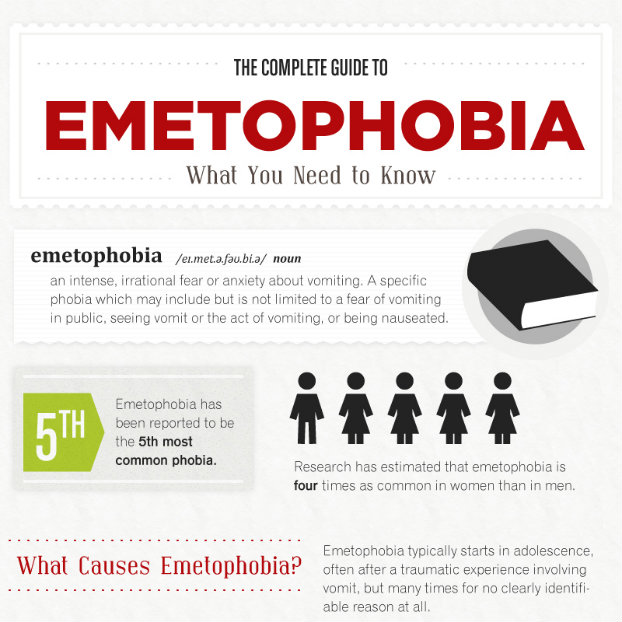 Anxiety disorders like emetophobia are usually accompanied by chronic worry that can lead to insomnia. According to the National Sleep Foundation, insomnia is “the inability to fall asleep or remain asleep” as well as “the condition of waking up not feeling restored or refreshed.” Sleeplessness can make you feel perpetually tired and irritable. It can also affect your ability to concentrate and go about your day. Driving while sleep-deprived is risky, and many people are reluctant to use sleeping pills. If it persists, insomnia can harm your work life and your social life.
Anxiety disorders like emetophobia are usually accompanied by chronic worry that can lead to insomnia. According to the National Sleep Foundation, insomnia is “the inability to fall asleep or remain asleep” as well as “the condition of waking up not feeling restored or refreshed.” Sleeplessness can make you feel perpetually tired and irritable. It can also affect your ability to concentrate and go about your day. Driving while sleep-deprived is risky, and many people are reluctant to use sleeping pills. If it persists, insomnia can harm your work life and your social life.
What Your Bedroom Should Do for You
There are simple strategies you can use to reduce stress-related insomnia. First of all, it is important to create a good environment for sleep. Your bedroom should be designed for your comfort. Your body may be more suited to firm or soft pillows, a foam or a feather mattress. When you go to bed, the lights should be off of very dimly lit. Bright lighting triggers your body’s natural rhythms, causing you to wake up or sleep fitfully. The temperature in the bedroom should be comfortable for you; overly hot or chilly rooms are unpleasant and disturb sleep.
It is recommended that you don’t work or watch television in your bedroom. A relaxing atmosphere is an important part of getting a good night’s sleep. That being said, it is okay to do some light reading or TV watching on the couch before heading to bed.
As difficult as this can be, you should also try to avoid taking a nap during daylight hours. If you just can’t stay awake throughout the day, keep your nap short. Naps should be fifteen to twenty minutes long at most. Taking a longer nap can diminish the quality of your sleep at night.
Natural Treatments for Anxiety and Insomnia
One old-fashioned sleep remedy is to drink warm milk before bed. Purportedly, it is the presence of tryptophan in warm milk which makes you sleepy, but others claim that drinking warm milk is simply a comforting ritual. In any case, it doesn’t hurt to try drinking a warm glass of decaffeinated tea or milk before bed to help with insomnia.
Two natural supplements that are believed to help with insomnia are magnesium and valerian root. Taking them at a small, recommended dose may improve sleep patterns.
For reducing anxiety that causes insomnia, doctors recommend yoga, meditation, and guided imagery. These techniques involve concentrated relaxation and self-control.
When Nothing Seems to be Working
There’s no shame in asking a doctor or licensed psychologist for help managing stress-related insomnia. These individuals can recommend exercises and medications (natural or over-the-counter) that may be exactly what you need. Sleep-inducing medicines can be very strong and addictive. You should consult with a professional and explore all your options before trying sleeping pills.





